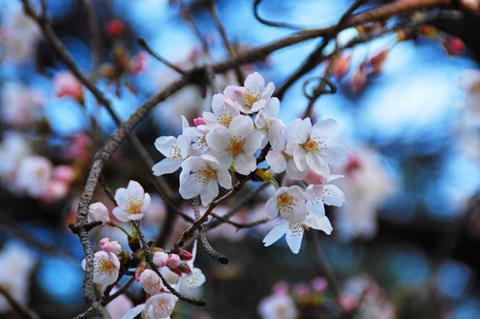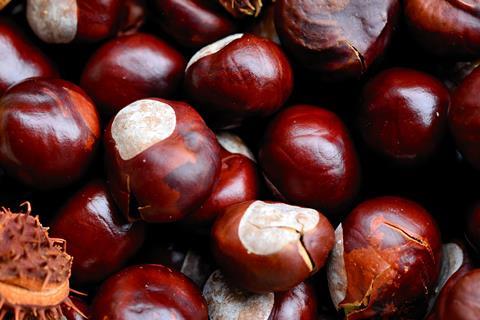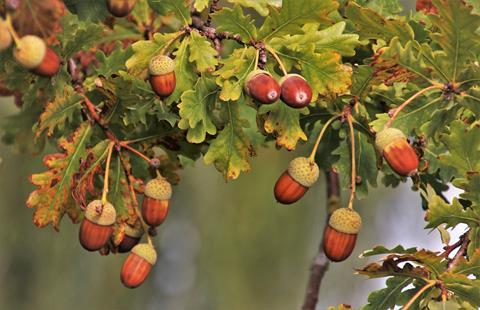Naina Korotania has been awarded the 2023 Basil Jarvis PhD Studentship, funded by Applied Microbiology International,and is poised to embark on a PhD at the Univeristy of Birmingham, developing novel phage-based biopesticides to target cankers in four tree species.
She opens up to The Microbiologist on her path to microbiology, her plans to develop bacteriophage treatments for plant diseases and her hopes for her PhD.

When did you first become interested in microbiology and what fostered that interest?
My interest in microbiology stemmed from my undergraduate degree in biomedical science and my masters degree in microbiology and infection at the University of Birmingham.
During my study and research, I have developed a deeper interest in microbiology, scientific investigations, innovative ways to experiment and reaching conclusions from the data gathered. This was also strengthened through my thesis study on examining antimicrobial properties of engineered surfaces against nosocomial and plant pathogens. Therefore, I took the opportunity to study this in greater depth in PhD postgraduate degree.

The coronavirus pandemic and the importance of hygiene and disinfectants have influenced different strategies, including social distancing and isolation to prevent the spread of infection. Being a frontline worker and having lost my grandad to Covid, I wanted to study microbiology in more depth to help make a difference. The raised awareness of microbiology and infection control has never been so crucial, and it was something that I wanted to be a part of.
What made you want to do a PhD, and why bacteriophages?
My fantastic motivating lecturers inspired me to study bacteriology in plants. Following my MSc degree project with Dr Mojgan Rabiey in a tree pathology lab, and by understanding more about tree pathogens, I realised my fascination for trees and their diseases.
Trees are the foundation of our ecosystem and provide social, economic and environmental services. The fact that there is currently limited or no treatment for many tree diseases is alarming. Chemical control via sprays of copper and antibiotics, such as streptomycin, were originally successful, until their overuse resulted in widespread antimicrobial resistance and toxic bioaccumulation.
Preservation of trees is critical for the environment and the health of human beings of future generations and therefore there is an urgent need to develop more efficient control measures to tackle existing and newly emerging bacterial tree diseases.

An alternative method of control is using natural microorganisms such as bacteriophages (phages or viruses), that infect and kill bacteria. Phages are one of the most abundant species on earth and are extremely selective and specific to their hosts and they do not affect any other microbes.
As a phage infects its host, one phage can infect one bacterial cell but at the same time it produces 100s of other phages that infect other cells, so there is a live interaction between phages and bacteria happening all the time. Using bacteriophage to control tree disease is an area that is somewhat understudied and with investment could lead to sustainable solutions and positive benefits.
Where did the idea come from to look at this particular subject?
During my MSc degree project with Dr Rabiey, where a large group of women scientists were working on how to tackle tree disease, I realised the importance of this area of research, especially in a changing climate with extreme weather conditions as a result of manmade problems.
The fascinating research conducted in the lab made me realise more than ever that trees are essential elements of natural ecosystems - they enhance biodiversity, stabilise soils and climate, and clean and recycle our water.

Bacterial pathogens cause significant economic and ecological devastation to these trees. There is currently no treatment for many of these diseases and the only option is to fell the trees as a way of preventing the spread. I want to be able to make a difference by developing these phage control strategies as a way to prevent spread of disease, to make a difference and help the world be greener for the future.
Why is it an important subject to tackle? Why is there a need for a new approach to dealing with pathogens in trees?
Working with trees is quite challenging, due to their size, slow growth, longevity and their woody tissue. Tree size and complexity prohibits experimental work, thus making it difficult to treat tree diseases.
Climate change is affecting the spread of tree diseases and as more chemical pesticides are lost due to bacterial resistance - therefore there is an urgent need to design and develop a sustainable way of treating and preventing bacterial disease. Phage therapy is an environmentally friendly approach to tackle the problem.

Phages are an important component of plant microbiomes and are becoming increasingly popular in plant pathogen control due to their highly specific host ranges and ability to selectively kill only the target pathogenic bacteria in complex microbiomes. This potentially helps the native microbiome reclaim space and balance as well as improving plant health.
As bacterial resistance emerges rapidly, phages can also rapidly evolve, potentially overcoming bacterial resistance in real time. It allows for rapid development of ‘cocktail’ or phage mixtures to reduce emergence of bacterial resistance.
Can you run me through what your aims are and what stage you have reached?
The overall aim of this research is to develop novel phage-based biopesticides for the control of bacterial canker of four different tree pathosystems; including ash canker, cherry canker, acute oak decline and horse chestnut bleeding canker.
The research questions to be answered are: can a novel cocktail of phages be developed to treat bacterial diseases of trees; does the application of a phage cocktail affect the microbial community of each tree?
To achieve this, I will first isolate phages of these pathosystems, from leaf, bark and soil samples, to characterise them to understand their efficacy in reducing bacterial population. I will develop and use methods for phage study in the lab of Dr Mojgan Rabiey and Prof Rob Jackson.
Have there been any particularly memorable moments in the process?
I will be starting this PhD research in February 2023. I am very grateful to Applied Microbiology International Basil Jarvis PhD Studentship for funding this project and for enabling me to reach my dream of doing research in a subject that I am most passionate about. I am sure there will be plenty of memorable moments to share with you after I am fully established in my PhD journey.

I am looking forward to starting my PhD in February and am so excited to learn new skills and be part of a community of scientists in the School of Biosciences and BIFoR.
How do you get the forestry/ horticultural industry on board with this approach and has that been a challenge?
I will be part of the Birmingham Institute of Forest Research (BIFoR) in University of Birmingham, where they are investigating the effect of climate change on trees and woodlands. I will interact with tree fruit growers and woodland managers and communicate the outcome of the project to them by attending relevant horticultural and forestry meetings.
Supporting documents
Click link to download and view these filesBacterial_Canker_on_Cherry
Other, FileSizeText 0.85 mb







No comments yet